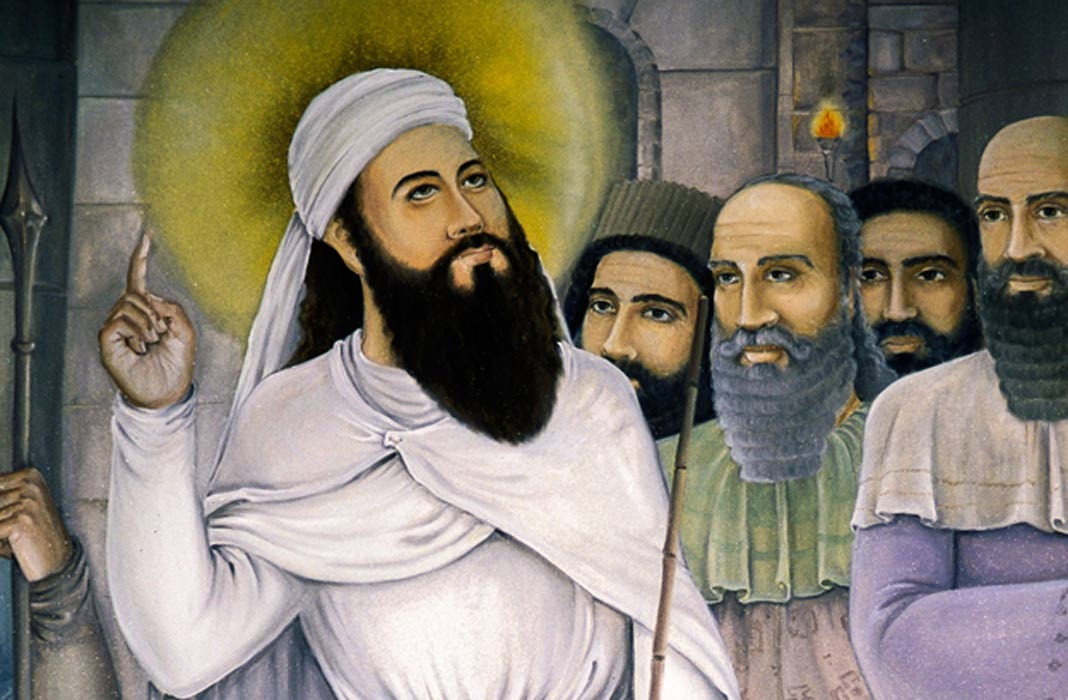The founder of humanity's first monotheistic religion: Who is Zarathustra, did he really live?
The Avesta, the holy book of Zoroastrianism, begins with a three-line counsel. “Hum'ata, Hak'hata ve Hve'sta. Let the thought be well thought out! Let the word be well spoken! Let the job be done well!”

Zarathustra is the founder of Zoroastrianism. Zoroaster is called Zarathustra in Avestan and Zarosht in Persian. According to some scholars, Zarathustra, whose real name is Sipitama, is said to be Iranian, but his exact place of birth is unknown. There is a prevailing opinion that he was born in eastern Iran. It is believed that Zoroaster was the author of the sacred Gatalar and Yasna Haptanghaiti hymns collected in the Avesta, the only extant document on Zoroastrianism. It is also called Mendeism in connection with the name Ahura Mazda, which they gave to the only believed god. Zoroastrianism, which was called Magusism (fire-worshipper) in the later periods, is a system based on the creed of light and darkness.
Zarathustra was born in Rey in 628 BC. It is believed that he died near Tehran in 551. Information about Zoroaster's life is insufficient. It is mostly based on legends, and guesses. It is accepted that it emerged 258 years before Alexander in Zarathustra's belief. Since Alexander the Achaemenid Dynasty (559 – 330 BC) took the Central Parsa (Persepolis) in 330 BC, Zoroaster converted his religion to Vistaspa, who is thought to be the king of Khorezm in the south of the Aral Sea, in 330 BC. It must have been adopted in 588. If the rumor that he was 40 years old at that time is true, BC. He must have been born in 628. Avesta is the holy book of Ancient Iran and Parsi of Persian origin living in India and its language is Pahlavi. Gathas are books attributed to Zoroaster and considered sacred by Zoroastrians.
On the Avesta and Zoroaster
One of the books I read in my youth was Friedrich Nietzsche's "Thus Spoke Zarathustra".
Zoroastrians that make up his community are often referred to as Magi, and they are a very old community that believes that the book called "Avesta", which was destroyed during Alexander's Asian expedition, was conveyed to the Zoroastrian Prophet through revelation.
Zoroastrianism, one of the most important subjects in the history of religions, draws attention to its common belief concepts with Judaism, Christianity, and Islam.
Avesta is the name of the holy book of the Aryan Prophet Zoroaster, who lived between 1500 and 1000 BC. It is thought that these texts, whose literal meaning is "basic, explanatory information", were written on twelve thousand ox skins, and that a large part of them was lost due to the wars made during Alexander the Great's Eastern campaign and the looting afterward. A part of the Avesta was protected by the Zoroastrian community, which escaped from these wars and migrated to India, and in the XVII century. It is known that it was translated into French by Anquetil-Dupperon of French origin in the 19th century.
Counsel of the Avesta
Later, the Zoroastrian religion was accepted as the state religion by the Sassanids and continued its effectiveness in a wide area until Iran accepted Islam. The Avesta consists of three parts; Yasts meaning “Prayers of Praise or Songs of Praise” added by Yasna, Vispered, Vendidad, and later Zoroastrian clergy… The Avesta begins with a three-line counsel. “Hum'ata, Hak'hata ve Hve'sta. Let the thought be well thought out! Let the word be well spoken! Let the job be done well!” I think that since the existence of humanity, almost everyone in their right mind has been expected to follow this advice, but unfortunately, this advice has not been followed enough for all these years.
Zoroaster after death
He says, "The first step of the liar's soul will be towards the place where the 'Evil Thought' is, the second step towards the place where the 'Evil Word' is, and the third step will be towards the place where the 'Evil Deed' is, and then it will merge into the eternal darkness."
The Zoroastrian faith has four leading rules. “The first of the duties to which adherents of good religion must obey; One should be brave towards the person who is valuable. Latter; The acts of the believer must also be pious and wise. Third; He should be open-hearted and truthful to everyone, and fourthly, he should keep falsehood away from himself.”
God Ahura Mazda calls out: “O Zarathustra! If you want to be clean and blessed and join the ranks of the clean, you must fulfill these two tasks. Your first task; You will value spirituality more by keeping the spiritual pleasure of existence ahead of the materiality of the mortal world. Your second duty is to tell every man the truth and be pious towards me; This means that what you do not like for yourself, you will not find worthy of anyone else.”
It has always impressed me to find in Avesta an idea that I have adopted as an indispensable rule throughout my life.
Two demons: Delay and Then
“As a requirement of the greatness I have given you, O Zarathustra, I give you a counsel; Do not leave for tomorrow the good work that you can do today with your own hands and soul! Do not take pride in being young and think that you can do it later. Efforts must be made not to postpone today's task for tomorrow. Evil Ahriman has appointed two demons for these works. The first is called 'Delay' and the second is called 'Later'. Both demons work with all their might to ensure that man's duties remain after his death. When it comes to a task or job, the devil named Delay says: 'You will live long anyway, so don't be in a hurry, this job can be done at another time'. Then the devil in his name says: 'Drop it now, it can be done later!'
